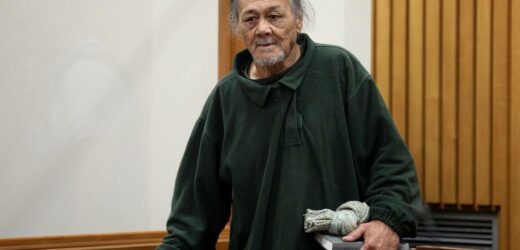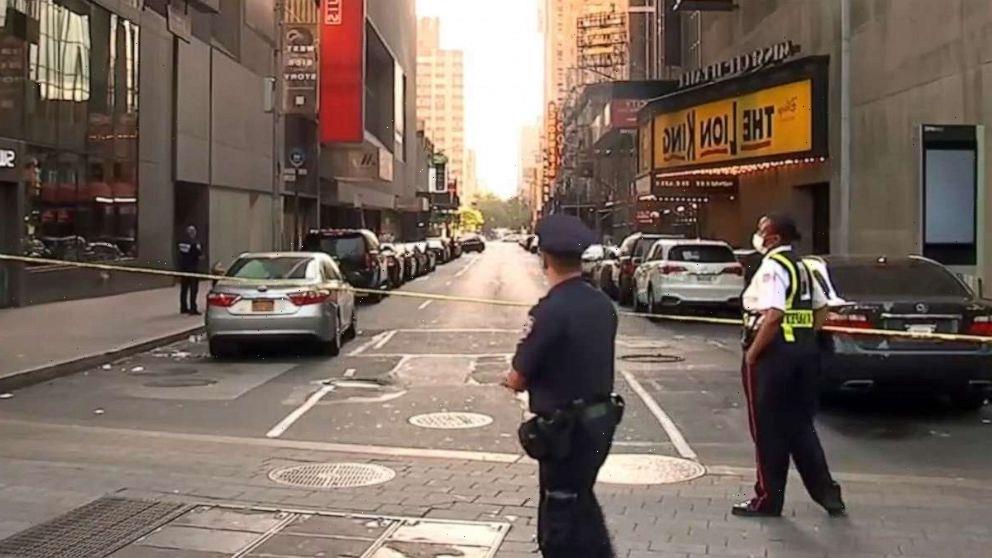The events leading up to Breen Makiri Snr stabbing his son with a butcher’s knife 12 times in a “frenzied attack” have been described as a “perfect storm” because of the father’s prior head injury.
Makiri Snr, 62, appeared for sentencing today in the High Court at Rotorua and was sentenced to five years and six months’ jail after previously pleading guilty to attempting to murder his son, Breen Makiri Jnr, and wounding another person with reckless disregard.
Justice Tracey Walker referred to a psychological report detailng Makiri Snr’s cognitive condition he suffered from as a direct result of being beaten by a group of assailants in 1990.
The serious assault put Makiri Snr in a coma for six days and in hospital for a month. He was never the same again.
Justice Walker said although it didn’t excuse what he did, it explained his violent over reaction and therefore reduced his culpability.
Makiri Jnr was stabbed all over his body, including his head, arms, chest and legs.
The father later told police if he had a gun he would have shot his son and that he wanted to kill him.
The other person, a woman who was a friend of Makiri Snr’s, tried to stop the fight and in the process, Makiri Snr took a large chunk of flesh off her shoulder with the butcher’s knife. Her actions were described in court as saving Makiri Jnr’s life.
A police summary of facts previously released to the Rotorua Daily Post said Makiri Snr and his son lived together in a one-bedroom unit in a block of flats on Herewini St. The relationship between them was described as volatile, with Makiri Snr wanting his son to leave.
On August 2 last year, the father and son and woman were drinking and socialising together. All but Makiri Snr went into the bedroom where they became intoxicated.
Makiri Snr started to argue with his son about how loud the music was playing and he became annoyed his son was so intoxicated he wouldn’t take responsibility.
The summary said Makiri Snr told his son to leave but Makiri Jnr refused, saying he had paid money and bought food for the house.
The argument became heated and Makiri Jnr started punching his father. Makiri Jnr then started overturning furniture in the lounge.
When Makiri Jnr picked up the television and threw it, Makiri Snr picked up a butcher’s knife and began stabbing his son.
The woman at the house had been in the bedroom when the fight started. She went into the lounge and saw Makiri Jnr being attacked by his father, she jumped between the pair.
In Makiri Jnr’s victim impact statement, he said he still loved his father but he no longer wanted anything to do with him or cared what happened to him.
Justice Walker said Makiri Jnr was still in physical pain from the stab wounds, he no longer felt safe and only wanted to stay home. He found comfort in alcohol.
“He has suffered physically and emotionally and that is something you have to bear for the rest of your life,” Justice Walker told Makiri Snr.
Justice Walker said Makiri Snr did not engage in the proper rehabilitation following his head injury and that had contributed to his life-long impacts. He now suffers poor memory, poor concentration and balance.
Justice Walker said a psychologist’s report noted cognitive impairments, memory deficits, mood swings, impulsive anger and rage were frequently seen in people who suffer such an injury as Makiri Snr’s.
“I am satisfied that this renders you more prone to explosive outbursts and anger, makes you overly sensitive to noise and less able to reason through and control those actions.
“The provocation on the day of the stabbing from the playing of loud music, drinking and what you described as disrespectful behaviour was something of a perfect storm for someone with reduced tolerance to frustration and lack of impulse control.”
Justice Walker said this didn’t excuse the “frenzied attack” but explained his violent overreaction.
She didn’t impose a period of non-parole but he was given his first warning under the “three strikes” legislation for violent offences. After three warnings, offenders must serve their full sentences with no parole.
Source: Read Full Article


